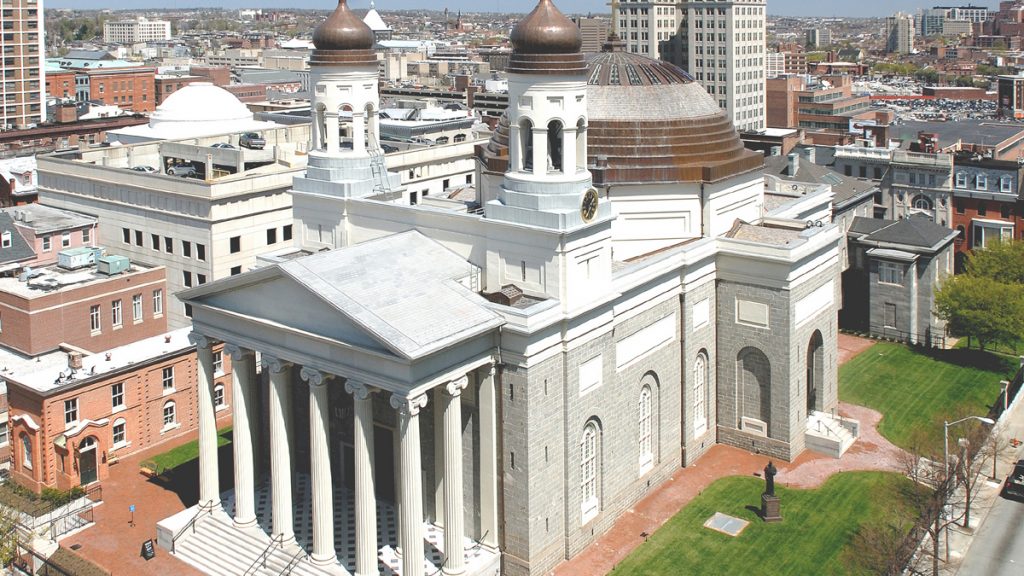A judge in Baltimore this week ordered all proceedings, filings, and communications related to the release of a major attorney general’s report on clerical sexual abuse to be made confidential.
Judge Anthony Vittoria of the Circuit Court for Baltimore City issued a confidentiality ruling Dec. 2 in response to a request from an anonymous group of people named in the report but who were not accused of abuse, the Baltimore Sun reported.
At issue is a 456-page report compiled by the office of Maryland Attorney General Brian Frosh, consisting of information given by the Archdiocese of Baltimore along with information gathered from interviews that claims to identify more than 600 victims of clerical abuse in the archdiocese dating back eight decades. It is currently unclear whether the report will lead to any new criminal charges.
The Archdiocese of Baltimore, which is paying the legal fees for the anonymous group of individuals, said it “does not and will not oppose the report’s release.”
“We stated this fact last week, when we also pledged to support the rights of some people who are mentioned in the report but not accused of abuse — and were not given the ability to respond to the attorney general during the investigation,” Archbishop William Lori of Baltimore said in a Dec. 2 statement.
“Now they deserve to be heard by the court, and we will pay their legal fees to ensure they are heard. I find it necessary to clarify this fact, which we openly stated after Attorney General Frosh publicly released his motion requesting permission from the court to release his office’s report. This does not mean the archdiocese will in any way seek to keep the report from being made public, as some have suggested.”
In a 35-page legal motion dated Nov. 17, Frosh had asked permission from a judge to release the documents provided by the archdiocese, which were given in response to a January 2019 subpoena from a grand jury. Vittoria’s ruling retroactively seals all previous filings in the matter, including that motion to disclose the report, the Sun reported.
Going forward, the legal processes of releasing the full report will not be disclosed to the public because of the confidentiality order. Should the full report be released, it will likely be redacted.
Lori apologized to victims of abuse in a November letter and reiterated the archdiocese’s current zero-tolerance policy for sexual abuse.
“Upon reading today’s motion, we feel renewed shame, deep remorse, and heartfelt sympathy, most especially to those who suffered from the actions of representatives of the very Church entrusted with their spiritual and physical well-being,” Lori said in a Nov. 17 statement.
“The information contained in the motion will no doubt be a source of renewed pain for many, most especially those harmed by representatives of the Church, for the lay faithful of our archdiocese, as well as for many good priests, deacons, and religious,” Lori said.
“Ever-aware of the pain endured by survivors of child sexual abuse, I once again offer my sincere apologies to the victim-survivors who were harmed by a minister of the Church and who were harmed by those who failed to protect them, who failed to respond to them with care and compassion and who failed to hold abusers accountable for their sinful and criminal behavior,” Lori added.
Frosh says the report names 115 priests who were prosecuted for sexual abuse and/or identified publicly by the archdiocese as having been “credibly accused” of sexual abuse. It also includes an additional 43 priests — 30 of whom are deceased, and the identities of the rest redacted — accused of sexual abuse “but not identified publicly by the archdiocese,” for a total of 158 names.
The archdiocese’s online list of credibly accused clergy includes 152 names, including many priests from other dioceses or religious orders and 17 religious brothers who served in or had a connection to the archdiocese, the Catholic Review reported. The list was last updated in June.
Addressing the apparent discrepancy between the number of priests named in the attorney general’s report and the number of credibly accused priests listed by the archdiocese, Lori said that the archdiocesan list does not include the names of priests or brothers who died before a single accusation of child abuse was received, unless the allegation could be corroborated by a third party or unless a second allegation was made against the same deceased cleric.

